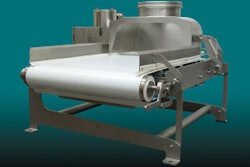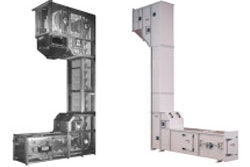In Disney's 2009 animated movie Up, a dog named Dug was a perfect example of how many employees behave in today's workplace. Faced with so many decisions on what to do next, Dug can't focus on any of them and ends up being distracted whenever a new option—or squirrel—crosses his path.
Employees in the workplace today face a constant stream of internal and external distractions that splinter their attention, energy and ability to operate at a high level of efficiency and creativity.
Internal distractions, for example, are often physical. Let's face it: we are a tired nation. We go to bed too late and then have to get up early, dragging ourselves into work and relying on caffeine and sugar to keep us going. How can we concentrate when we're fighting to stay awake? Add in the odds that we're also constantly dehydrated (80 percent of Americans are) and not getting enough nutrients or exercise, and it make sense that we’re not at the top of our game. Instead of having physical and mental energy for performing the job, we think about the caffeine headache, indigestion, or hunger we feel. It's certainly hard to be a high performance employee facing those distractions.
Even if we get past the internal, physical distractions, we are inundated with external ones. Phone calls, text messages, emails, meetings — scheduled and unscheduled — eat into the productivity of our day.
In today's offices, emails are probably the most prevalent form of communication and therefore the most dangerous in terms of distractions. Every time you hear that ding signaling an incoming email on your computer, you become distracted. Even if you don't immediately look at the email, your attention has shifted, and you take your mind off of the task at hand to wonder if you should answer the email. If you do answer it, you become further distracted. In either case, you then have to spend additional minutes refocusing on the initial task.
Employees have so many distractions these days because we live with the mentality that everything is important, and what that means is that nothing is important. Our priorities keep getting watered down because we spend so much time putting out fires.
In an effort to accomplish everything, employees (and too often, their managers) believe that working longer hours is the key to success, but in this age of the Knowledge Economy, we need to acknowledge that working longer doesn’t mean working harder or better.
We do not need employees working 12-hour days to increase their performance. In fact, that is a formula for failure. No one can work even an 8-hour day (much less a longer one) at 100 percent, while also maintaining a high level of productivity. We need to revise our concept of how to create an effective workday, and lengthening it is not the answer.
Instead, reducing distractions and establishing clear priorities and reasonable expectations are necessary to help employees perform their best in the long term. Fortunately, both employees and management can make a difference.
As an employee, you can:
- Take control of time. For every meeting request, consider whether you really need to be there or if your current work should take precedence.
- Limit interruptions. Set your phone calls so they automatically (and silently) go to voicemail, and silence your computer's ding so you're not distracted by email. Instead of checking messages instantly, check them every hour or so.
- Go to an empty conference room or a nearby Starbucks to get work done in a more neutral environment.
- Take care of your health by getting the rest and nutrition you need to generate the energy required.
As a manager, you can:
- Help employees be strategic in how and where they spend their time. Make sure they understand that the results matter, not the face time. Don't clog up your employees' time with unnecessary meetings and projects.
- Encourage employees to take a break to mentally refresh. Letting your employees take a short mid-day nap or go home at a decent hour at the end of the day shows them that you value their work product.
To be successful, today's companies can no longer afford to keep employees as prisoners at work, serving a sentence based on time spent in the office. Instead, we must create an authentic environment that encourages employees to bring their best energy and effort every day, and one that recognizes and rewards high performance.























